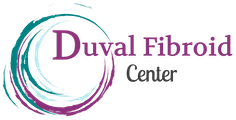There is no shortage of diet recommendations in today’s media, from magazines to social media to talk shows and more. But regardless of what weight loss commercial is trying to dictate what your diet should look like, it should actually be built around your individual health needs and medical conditions, such as with uterine fibroids.
While many women seek various forms of medical treatment to reduce their fibroids and eliminate the many symptoms they may experience, it’s important to note that you can help prevent and treat fibroids at home by simply altering your diet.
Here’s how:
Foods You Should Eat
While researchers have yet to pin down the absolute underlying cause of uterine fibroids, much of today’s research points to an abundance of estrogen as a strong contender for the root cause of them.
Thus, eating a well-balanced diet of foods that lack estrogen but are packed with nutrients is recommended for women with fibroids.
For example, foods that detoxify your body — such as carrots, garlic, beets, or other colorful vegetables — will help to restore balance to your internal systems. Cruciferous vegetables (vegetables in the cabbage family) are also great for detoxifying and strengthening the liver. So, when throwing in veggies, be sure to aim for (but don’t overcook!) greens like broccoli, kale, bok choy, cabbage, and turnips.
Additionally, food or beverages that are anti-inflammatory and antioxidant in nature — as with green tea, pineapple, blueberries, and more — can help to counteract the effects of estrogen in the body.
Foods To Avoid
If you’re adjusting your diet to eliminate estrogen, then it goes without saying that you have to actively look for and cut out foods with higher levels of estrogen.
For instance, when looking for a protein kick, try cutting back on your red meat intake and trimming the fats off of any chicken or turkey. And in terms of dairy… cheese, cream, and butter should all be cut back on, as well as low-fat milk, which would ideally be swapped for whole milk.
Soy is another byproduct with increased estrogen levels, which can actually make a woman 2.5 times more likely to develop fibroids. Therefore, soymilk, tofu, tempeh, and other soybean-related products should certainly be avoided.
The Bigger Picture
At the end of the day, women who are higher in weight are also shown to be at an increased risk of developing uterine fibroids. But by indulging in regular exercise and dedicating yourself to a well-balanced, estrogen-low diet, you’ll have an easier time maintaining your weight and helping your body to combat the effects of uterine fibroids.
Otherwise, one of the best measures you can take is to contact a local professional. And that’s why Duval Fibroid Center is here — to help educate, guide, and treat women with uterine fibroids, with the ultimate goal of eliminating fibroids so as to help you lead a pain-free life!
If you’re ready to reach out about uterine fibroids, call Duval Fibroid Center today at (904) 423-6017.
